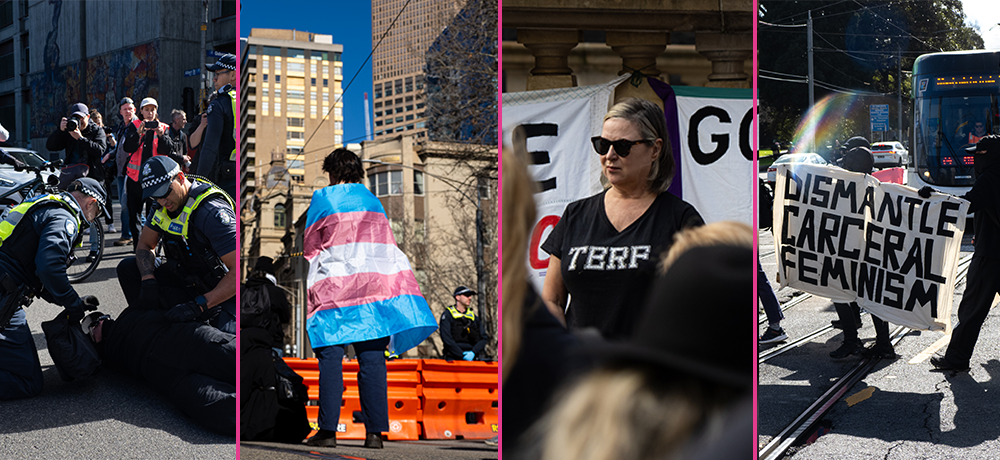
Historic reforms for gay couples
Following a nationwide inquiry into discrimination against people in same-sex relationships, the Australian Human Rights Commission released the Same Sex: Same Entitlements report. This report recommended the amendment of over 100 federal laws to ensure two things.
Firstly, that same-sex couples and opposite-sex couples enjoy the same financial and work-related entitlements and, secondly, that the interests of children with same-sex parents are equally protected in the areas of financial and work-related entitlements as children of opposite-sex couples. The report highlighted that at least 20,000 same-sex couples experience systemic discrimination daily.
The removal of this discrimination was to be achieved through major and minor pieces of reform covering all areas of the law including family law, superannuation, social security, and industrial relations.
The Family Law Amendment (De Facto Financial Matters and Other Measures) Bill 2008 amended the Family Law Act (1975) to provide for opposite-sex and same-sex de facto couples to access federal family law courts on property and maintenance matters.
This means that de facto couples can access the Family Court rather than the more expensive and time-consuming state supreme courts. The Act also amended financial agreements between couples and superannuation splitting, as well as providing for certificates in relation to family dispute resolution.
For this legislation to be fully applicable across the country, it requires states to refer their powers to the Commonwealth for the purpose of accessing the Family Law Court.
While much of the change to the Family Law Act was common sense, there is still some work to be done around the definitions of -˜parent’ and -˜child’. Specifically, the use of gender-neutral language is necessary, to cover all parents. But we still need to see a complete overhaul of current surrogacy legislation to ensure equal rights and access for everyone.
Another area of discrimination has been superannuation. Before the changes to the Superannuation Industry (Supervision) Act were made, no superannuation fund was required to recognise same-sex relationships or children of same-sex relationships. This meant that in the event of a partner’s death, you would only receive their superannuation at the whim of their next-of-kin. This has been one of the most insidious forms of discrimination. Recognition of your relationship in the event of your partner’s death shouldn’t be something you have to fight for.
This reform required a new definition of a -˜couple relationship’ -” explicitly referencing same-sex couples in the definition of partner, and the addition of registration of a relationship as evidence of this relationship.
This will also ensure that children born into same-sex families have the same rights and entitlements to superannuation benefits as children born into opposite-sex families -” a basic right. The Act expanded the changes to the definition of -˜child of a relationship’ by adding the concept of a child who is the -˜product of a relationship’. There is a need to ensure the distinction between parents, co-parents and step-parents is not inappropriately or unnecessarily blurred.
Unfortunately, almost 90 percent of Australians have their super tied up in private schemes rather than public schemes, and the amendments to the Act only compulsorily apply to public schemes. This allows private superannuation firms to remove discrimination at their discretion -” it does not mandate them to do so.
By far, the most contentious of these changes (and for very good reason) has been the Social Security Act reforms. These represent major social reform, yet have had very limited transitional or grandfathering provisions attached. These reforms have had the most media attention, due to the negative impact they will have on the most vulnerable members of the LGBTIQ community.
However, some concessions have been achieved, most notably some funding for community education and an awareness campaign and information hotline. It is essential that people seek as much independent advice as possible (from the Welfare Rights Centre or another community organisation). It is possible to approach Centrelink for an assessment before simply declaring couple status.
It is also possible, under Section 24 of the Regulations of the Social Security Act, for the general manager of Centrelink to determine that a person who is a member of a couple not be treated as a member of a couple for the purposes of the Act.
Changes to industrial relations were done through the repeal of the Workplace Relations Act and the passing of the Fair Work Act, rather than amending the existing legislation. For the first time industrial relations legislation will include definitions relating to family and children that include same-sex couples.
This means that all benefits and entitlements pertaining to family matters will automatically be extended to same-sex couples and their families.
This is a huge step forward from the situation where family provisions would only apply to same-sex couples and families if it was explicitly included in the relevant award, individual contract or collective agreement.
Discrimination against a worker on the basis of their sexual preference will now be considered an offence against the public good and can be prosecuted directly by the relevant government agency, rather than through an individual employee versus employer challenge. A breach of the Act can now simply be reported and the agency shall have the ability to pursue anti-discrimination actions on behalf of not only individuals but for the public good, similar to the current Occupational Health and Safety Act.
Unfortunately, there are still a number of employers (including religious institutions) who will be automatically exempted.
The onus will be on the employer to prove that discrimination did not occur, ensuring employers must
recognise that in order to not discriminate against someone, they need to do more than avoid offending them to their face.
Unfortunately, while some provisions have been extended and improved upon, there is no such protection for the transgendered and intersex members of our community. This is something we must rectify, and could be achieved in any number of ways, including adding gender identity as a prohibited reason for discrimination into the Fair Work Bill; inclusion of gender identity in the Sex Discrimination Act; or a sexual orientation and gender identity anti-discrimination act.
While these reforms have constituted one of the largest sets of LGBTIQ law reforms in the world, this does not mean our work is done. Systemic discrimination continues to be perpetrated against our communities daily.
While these reforms are a huge step forward, at no point has there been an attempt to address the roots of prejudice and unfair treatment in Australian society. While legislation is a start, it’s the attitudes of our Government that most needs to change to see any meaningful difference in the lives of LGBTIQ individuals, and not just our combined tax statements.









